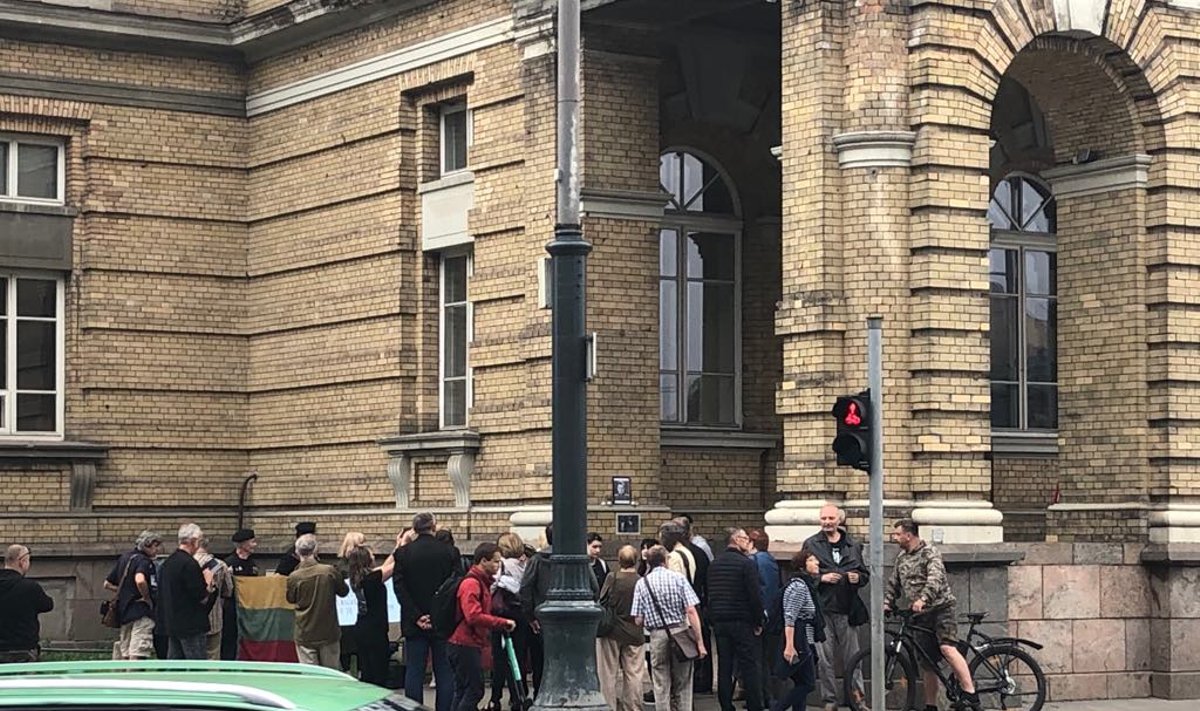Jonas Burokas, chairman of the Lithuanian Union of Freedom Fighters, told BNS Lithuania the had been plans to put the plaque back on Friday on the 30th anniversary of the Baltic Way but it was not produced in time.
"The initiative has been postponed. We head such ideas but we faced obstacles regarding its production but we hope it will be done in early September. It would have been symbolic, it would have been good, but we had to postpone. Maybe more young people and students will come," Burokas said.
In his words, the new bronze plaque is now being produced and, differently from the old one, it will contain an inscription that Noreika was a prisoner of the Nazi concentration camp in Stutthof.
The controversial plaque to Noreika, which was in place for more than two decades, was removed in late July by the decision of Vilnius Mayor Remigijus Simasius. He said he made the decision as Noreika, as head of Siauliai County during the Nazi occupation period, signed documents on the establishment of a Jewish ghetto and on arrangements regarding Jewish property.
Juras Banys, president, of the Lithuanian Academy of Sciences, does not support the initiative, saying that the organizers should '"take the legal way" and turn to the municipal commission making decisions on names and memorial plaques. They could also turn to court over Simasius' decision.
"When someone wants to hang something that's been removed, it leads to chaos. I am in favor of doing all this by taking the legal way," Banys told BNS Lithuania.
Public discussions on this plaque have been taking place in Lithuania for many years. The plaque was placed on the facade of the Wroblewski Library of the Lithuanian Academy of Sciences in central Vilnius to honor Noreika as a prominent member of the anti-Soviet resistance in Lithuania.
Lithuania's Jewish community has for some time demanded the removal of the plaque honoring Noreika who, as head of Siauliai County during the Nazi occupation period, signed documents on the establishment of a Jewish ghetto and on arrangements regarding Jewish property.
The plaque for the controversial figure was in April smashed with a hammer by Stanislovas Tomas who unsuccessfully tried to run for the European Parliament. It was later glued back together and put back on the wall, and the municipality's representatives vowed to consult historians.
Noreika was arrested by the Soviet authorities in March 1946 and executed a year later.
In 1997, Noreika was posthumously awarded a 1st-degree order of the Cross of Vytis.
